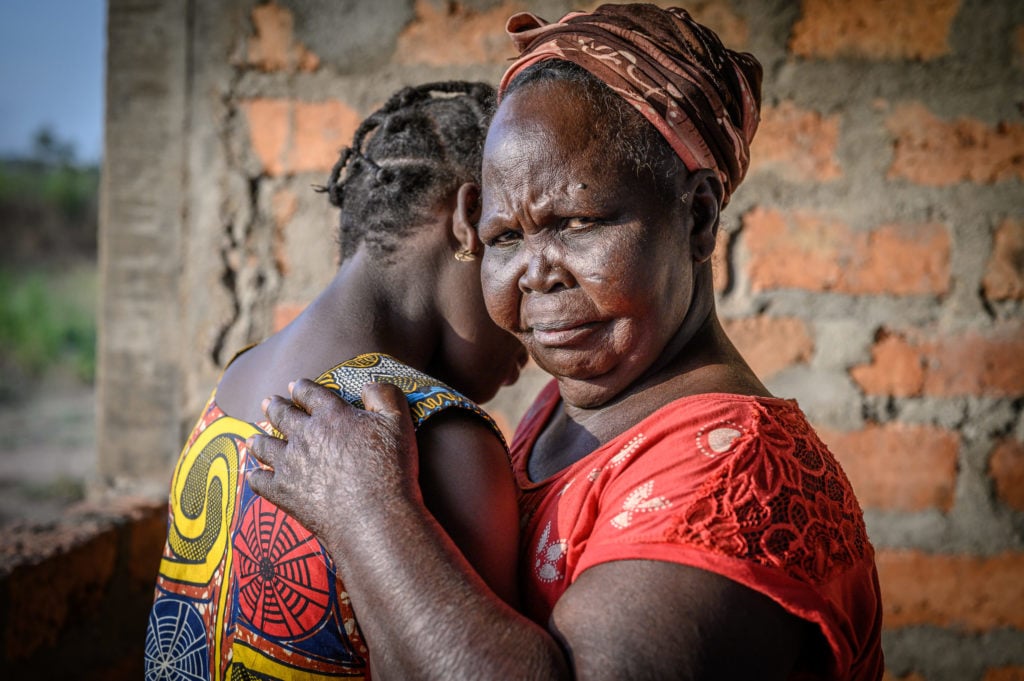Armed conflict has been devastating the Central African Republic ever since a violent takeover of power in 2013. It caused a humanitarian crisis that is on par with those in Yemen and Syria. Yet, lacking geopolitical importance, this country is largely forgotten by Western media and unknown to most people.

Rebels and the government signed a peace deal in Khartoum, Sudan, in February 2019. But armed clashes continue to flare up. Large parts of the country are still in the hands of anti-government armed groups, who are predominantly Muslim. Their brutal attacks are countered by equally violent assaults from – predominantly – Christian self-defence groups called the Anti-Balaka.
Humanitarian assistance
Over 60% of almost five million Central Africans need humanitarian assistance. More than 600.000 people are internally displaced by armed conflict. Nearly as many fled abroad.
In this context of crisis and insecurity, the Dutch Relief Alliance, in partnership with the Netherlands Ministry of Foreign Affairs, joined hands with Central African responders and authorities. Together, we set up joint responses in some of the country’s most affected provinces, starting in 2015.
Fifth worst place in the world
Until the end of 2021, this Dutch-Central African humanitarian alliance—psychologists, shelter and sanitation experts, logisticians, community workers, coordinators, drivers, and many more—reached out to people traumatized by war, displacement, and extreme poverty. We operate in a country that is the fifth-worst place in the world in terms of aid worker security.
Together, we provided protection services to more than 200,000 children, youths, and their families by setting up child-friendly spaces and vocational training centres and by providing psychosocial support and legal aid. Many of these youngsters saw how their parents were killed.
Many of them, often boys, took up arms and became child soldiers, sometimes for months, sometimes for years. Many girls were assaulted, raped and forced into motherhood.
Watch this video about the joint response of the Dutch Relief Alliance in the Central African Republic:
Achievements of the Dutch Relief Alliance
The water points and latrines we constructed or rehabilitated provide clean drinking water and safe toilet facilities to more than 260,000 people. We also constructed or rehabilitated 230 destroyed or damaged houses. We supported more than 110,000 farmers and family members by giving them tools, seeds, and training to increase their food security and improve their livelihoods. We organised cash-for-work activities to support families with income and handed out cash unconditionally to destitute and vulnerable persons who couldn’t work.
This photo report shows some of the people we assisted in 2019 in the préfecture of Ouham and some of our first responders. They don’t tell everything there is to tell, but they do give a face to what we, humanitarians, commonly call the CAR JR, the Joint Response in the Central African Republic.
Compassion
“Humanitarian work in conflict areas is not only about logistics and security. It is also about compassion and standing with others”, says Elorry Mahou, who coordinated the joint response in the Central African Republic. In a way, Francis Fio proves her right. When this former child soldier whose parents were shot in front of him, tried to explain what humanitarian support meant to him, he said: “It gives me hope. It’s a bit like my parents are here again.”
The Dutch Relief Alliance proudly introduces you to Francis, Elorry and many other inspiring people in the beautiful, ravaged and forgotten country of the Central African Republic.
Text by Frank van Lierde. Pictures by Mickael Franci.
About the Dutch Relief Alliance
The Dutch Relief Alliance (DRA) is a collaboration between 15 non-governmental humanitarian organisations based in the Netherlands in partnership with the Netherlands Ministry of Foreign Affairs. DRA is committed to saving lives and improving the well-being of those hit hardest by global humanitarian crises. It was established in 2015 to enable participating NGOs to respond timely and effectively to international crises.
The DRA members are CARE Nederland, Cordaid, Dorcas, ICCO / Kerk in Actie, Oxfam Novib, Plan International Nederland, Red een Kind, Save the Children, SOS Kinderdorpen, Stichting Vluchteling, Tearfund NL, Terre des Hommes, War Child, World Vision, and ZOA.
The Central African Republic Joint Response
In 2019, the Central African Republic Joint Response was carried out by ICCO / Kerk in Actie, Plan International Nederland, SOS Kinderdorpen, Stichting Vluchteling / IRC and Cordaid (lead organisation).
Collaboratively, we provide humanitarian assistance to the people most affected by the crisis, regardless of their ethnicity, religion, age, or sex. We support internally displaced persons, returnees, and host families and communities.
